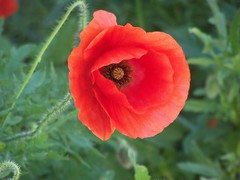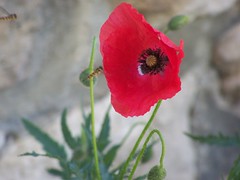In which I move to Paris, start a new job, quit smoking and become an all round new and shiny person. Or not. But the moving to Paris/new job bit is real.
Saturday, 2 July 2011
Battle of the Somme
Yesterday marked the 95th anniversary of the beginning of the Battle of the Somme. One of the bloodiest military operations ever recorded, the Battle of the Somme lasted from 1 July 1916 to 18 November 1916. More than 1 million soldiers were killed. It has become synonymous with slaughter.
On the first day alone, more than 19,000 British soldiers were killed, more than 35,000 were wounded, more than 2000 were missing in action and 585 were taken prisoner. It was, to say the least, not a good day for the British. Things did not improve significantly over the entire course of the campaign. By the end, the British had gained a mere 2 miles of territory and lost 420,000 men to do so.
The Somme and the trauma it instilled in the men who fought there led to some of the most graphic of the war poems, written by poets like Sassoon and Owen. A couple of the ones I find more memorable, and most moving, are:
ANTHEM FOR DOOMED YOUTH by Wilfred Owen
What passing-bells for these who die as cattle?
---Only the monstrous anger of the guns.
Only the stuttering rifles' rapid rattle
Can patter out their hasty orisons.
No mockeries now for them; no prayers nor bells;
Nor any voice of mourning save the choirs,---
The shrill, demented choirs of wailing shells;
And bugles calling for them from sad shires.
What candles may be held to speed them all?
Not in the hands of boys but in their eyes
Shall shine the holy glimmers of goodbyes.
The pallor of girls' brows shall be their pall;
Their flowers the tenderness of patient minds,
And each slow dusk a drawing-down of blinds.
DULCE ET DECORUM EST by Wilfred Owen
Bent double, like old beggars under sacks,
Knock-kneed, coughing like hags, we cursed through sludge,
Till on the haunting flares we turned our backs
And towards our distant rest began to trudge.
Men marched asleep. Many had lost their boots
But limped on, blood-shod. All went lame; all blind;
Drunk with fatigue; deaf even to the hoots
Of tired, outstripped Five-Nines that dropped behind.
Gas! Gas! Quick, boys!---An ecstasy of fumbling,
Fitting the clumsy helmets just in time;
But someone still was yelling out and stumbling,
And flound'ring like a man in fire or lime...
Dim, through the misty panes and thick green light,
As under a green sea, I saw him drowning.
In all my dreams, before my helpless sight,
He plunges at me, guttering, choking, drowning.
If in some smothering dreams you too could pace
Behind the wagon that we flung him in,
And watch the white eyes writhing in his face,
His hanging face, like a devil's sick of sin;
If you could hear, at every jolt, the blood
Come gargling from the froth-corrupted lungs,
Obscene as cancer, bitter as the cud
Of vile, incurable sores on innocent tongues,---
My friend, you would not tell with such high zest
To children ardent for some desperate glory,
The old Lie: Dulce et decorum est
Pro patria mori.
Contemporary society may have considered Owen mad; with the light of hindsight, his looks like the only sensible reaction to the insanity he witnessed. His poetry vividly evokes the horror of war. It's a shame we seem to have largely forgotten it, as we've moved to more high-tech types of warfare that allow us to distance ourselves from exploding limbs in far-flung countries. We should remember, if only so we never have to live through a battle like the Somme again.
Subscribe to:
Post Comments (Atom)



Yes, the mouse works! What struck me was the guy in the "dog got a problem..." t-shirt with the giant bubble is a slightly shorter and stockier version of Stu (who as I write is sailing off Croatia with Lou and her Mum and stepfather - I'm just jealous, of course).
ReplyDelete